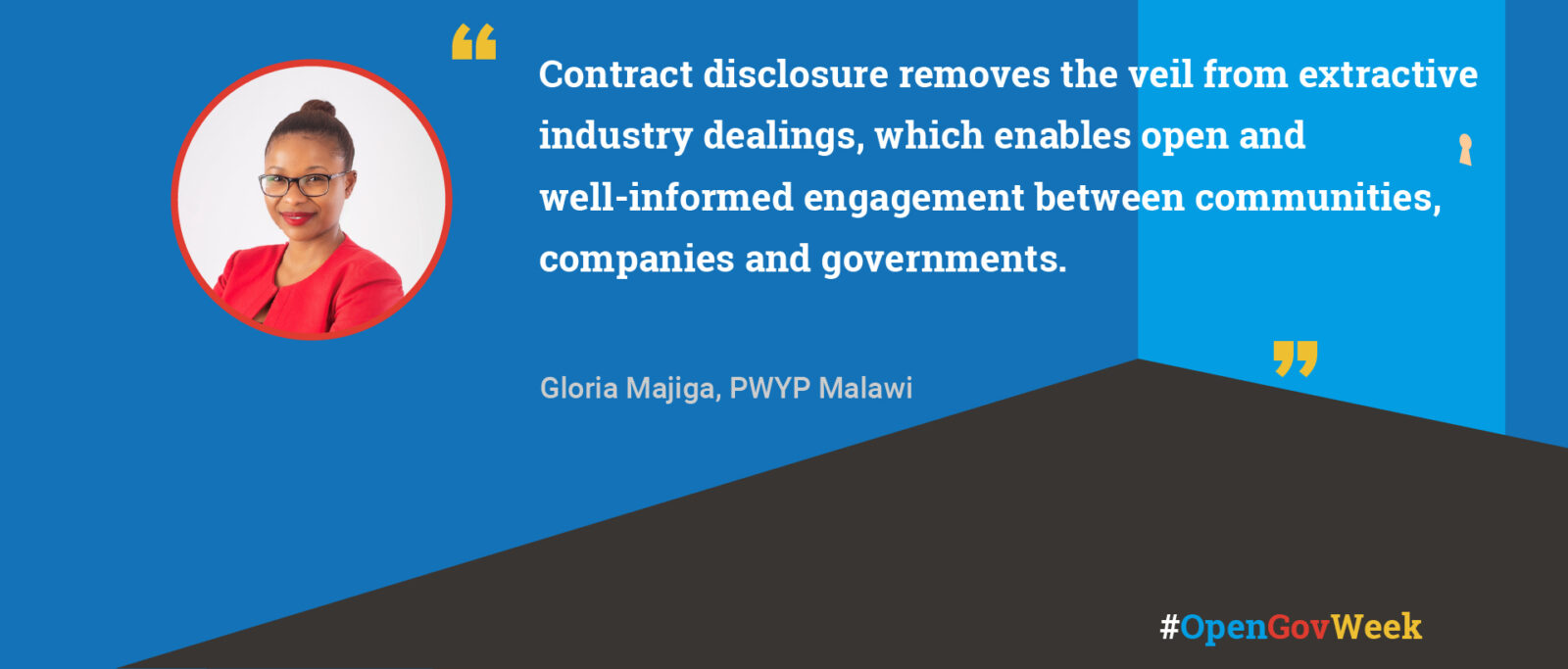
This week open government champions are taking part in hundreds of events around the world driven by a simple, core aim: that citizens should have greater participation in their governments.
Open Gov Week is a critical moment for government leaders, civil society advocates and citizens to promote the accountable, responsive and inclusive governments that the Open Government Partnership (OGP) was set up to foster in 2011.
The week also provides PWYP members with a crucial chance to highlight the importance of contract transparency in the extractive sector.
For years we’ve campaigned to end the secrecy shrouding oil, gas and mining contracts; a secrecy under which corruption thrives and wealth from natural resources is funnelled away from public services such as healthcare and education, and into the bank accounts of small groups of elites.
In January, a milestone in this campaign was achieved when the 55 EITI member countries were required to publish all new or amended oil, gas and mining contracts.
As welcome as this is, the battle for contract disclosure has only been partially won: the EITI rule doesn’t cover deals made before 2021 unless they have been amended after January 1st this year, or contracts in countries which are not part of the EITI. Disclosure of additional but important information in annexes is also patchy. This is why we launched our #DiscloseTheDeal campaign earlier this year.
The OGP process is an opportunity to keep the momentum up, and push for commitments which extend beyond the EITI standard.
These commitments can be achieved through the National Action Plans that OGP members issue every two years, which are co-created with civil society, as our members from around the world explain here:
Olena Pavlenko is Chair of the PWYP Global Council and President of the DiXi Group, a Kyiv-based think-tank specialising in research and consultations in the energy sphere. She has served as not-on-staff Advisor to the Minister of Foreign Affairs of Ukraine (2019) and to the Minister of Energy (2015-2016).
“The EITI and contract disclosure is a big part of Ukraine’s OGP action plan. The government and civil society have clear rules and procedures on how to cooperate. We don’t have many conflicts or misunderstandings, so we all can focus our efforts on implementing the action plans within the OGP.
The main point is to build more trust between all of us, because our extractive sector has a deep history of corruption. People don’t trust the companies or government in this particular sector. If they want to build trust with civil society and local communities, the first step is to show that they have nothing to hide.
That will help communities understand where the money’s going and what different stakeholders’ obligations are – for instance, what they can expect from companies and the government in terms of environmental rules and procedures and social obligations. If all this information is hidden, it allows companies and the government to just walk away and not fulfil them.
The OGP action plan can be a successful strategy for achieving contract disclosure, which other countries and civil societies organizations could follow. Fighting for open contracts isn’t easy, because you come up against powerful business interests, so including demands for contract disclosure in as many international initiatives as possible, means there is more chance of it being realised.”
Charfeddine Yakoubi, Tunisia
National coordinator, the Tunisian Network for Transparency in Energy and Mines
“In Tunisia we are working on our fourth Open Government Partnerships action plan.
I think these action plans are an important tool for engaging governments and putting pressure on them to increase contract transparency, provide open data and for better extractive industries governance.
The OGP and its action plans are also a way to help us, as civil society, to find international support for our activities related to the extractive industries. This is one of the things that make OGP very important for us.”
Paul Barker, Papua New Guinea
Director of the Institute of National Affairs, an independent policy think tank in Port Moresby, and manager of CIMC, which facilitates dialogue between the government, the private sector and civil society in PNG.
“Mining has long been a source of conflict and grievance for many of the communities who live near its sites in PNG.
Giving citizens access to information, through contract disclosure and other forms of transparency, is essential to resolve the issues that have plagued the extractive sector in PNG.
The PNG’s National Action Plan recognises this, and can be an important lever to help achieve it.”